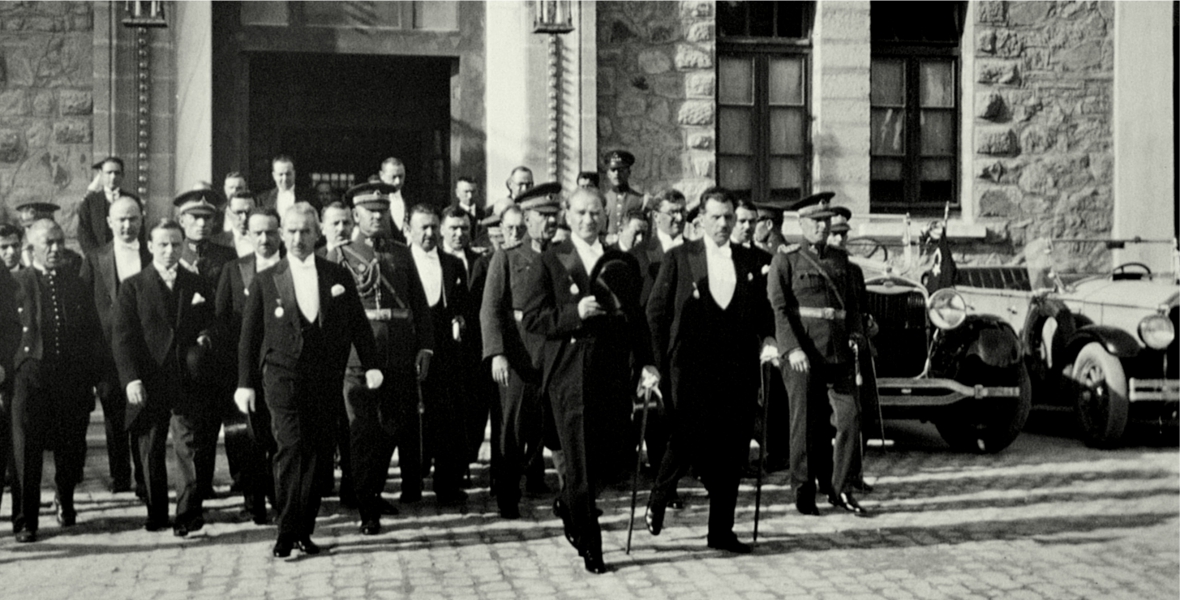
Mustafa Kemal Atatürk Fundamentals
Mustafa Kemal Atatürk Fundamentals. The Turkish nation in protest to the Mondros Armistice and the Sevres Treaty started its War of Liberation under the command of Mustafa Kemal (later given the name “Atatürk” or “Father of Turks”). The war of independence freed the Turkish homeland of foreign occupation and eventually led to the founding of the Republic of Turkey. After the victory, the Turkish Grand National Assembly in Ankara abolished the office of the Sultan on November 1, 1922, thus ending 631 years of Ottoman rule in the world.
Atatürk (1881-1938) served as the first president of the young republic until his death. On July 24, 1923, with the signing of the Treaty of Lausanne, the independence of the new Turkish State was recognized by all the states. On October 29, 1923, he declared the new Turkish State a “Republic”. Atatürk, besides being a military genius, a charismatic leader, was also a comprehensive reformer. He dispelled his country’s archaic beliefs and customs for it was essential for Turkey to Westernize to progress towards the level of contemporary civilizations. The series of reforms were welcomed by the Turkish people.
The new Turkish State founded in 1920 requires a new legal system; thus Atatürk adopted the Swiss Civil Code as substitute for Canonical Law, and instead of the penal code then in force brought the Italian Penal Code. As a result of such a modification, secularism, one of the fundamentals of Kemalism, signifying the complete separation of government and religious affairs, was adopted. Also a university reform was introduced in 1933 since the Ottoman systems of education did not meet the needs of the society.
One of the most important reforms of Atatürk was the abolition of use of the Arabic script and the adoption of the Latin script; in 1928 the new Turkish Alphabet was adopted. Also with the reforms of Atatürk, Turkish women, who for centuries had been left neglected, were given new rights. Thus with the civil code passed, Turkish women would enjoy equal rights with those of the men, could be appointed to official posts, would enjoy the right to vote and to be elected to the Parliament. With the reform on dress, women stopped wearing veils and “çarşaf”; men started to wear western style hats rather than the “fes”.
Many other adopted reforms are the Weekend Act in 1924, in 1925 International Time and Calendar System, in 1926 Obligation Law and Commercial Law, in 1933 System of Measures according to western standards, and in 1934 the Surname Act. As a result of the reforms, Turkey’s economic structure was completely changed for the better. Atatürk’s foreign policy is based on, as he himself has underlined,
“Peace At Home, Peace In the World”.
Atatürk’s principles are summed up in six fundamentals:
* Republicanism
* Nationalism
* Populism
* Etatism
* Reformism
* Secularism
Mustafa Kemal Atatürk died in 1938, but attained immortality in the eyes of his people. Beloved by the people he had delivered, a magnificent tomb – Anitkabir – was built for him on a prominent hill in his new capital of Ankara.
